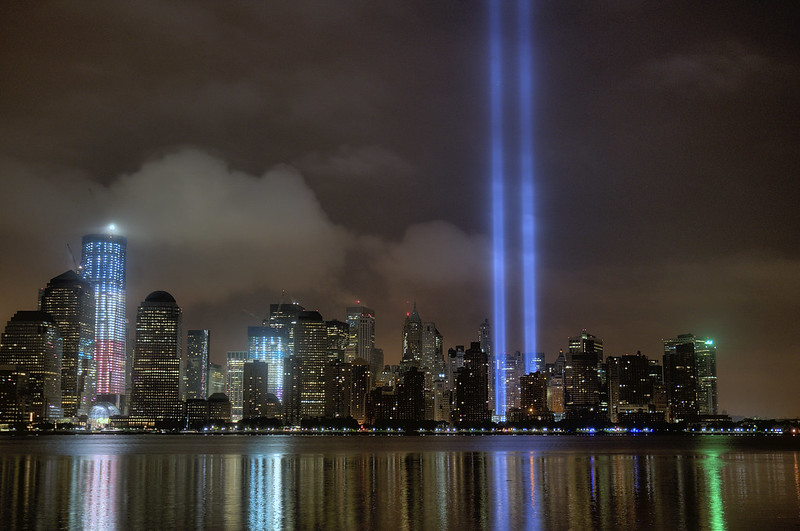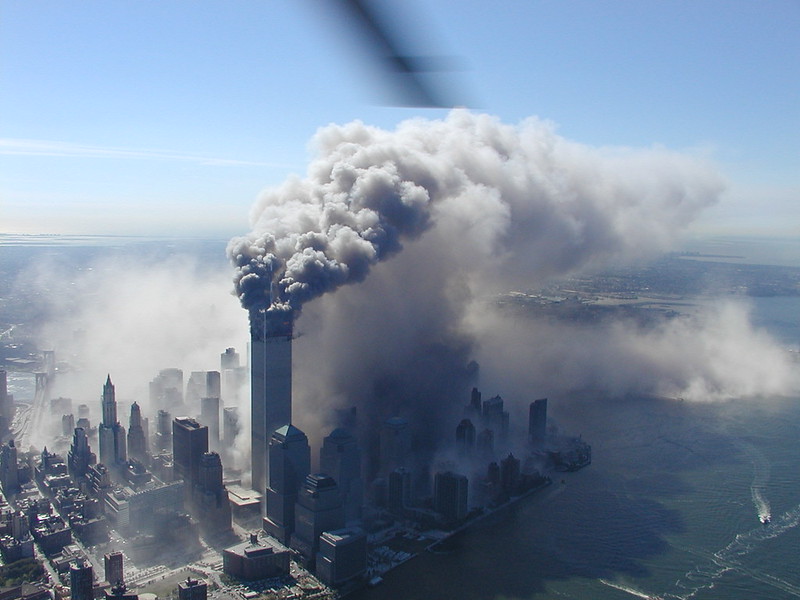The lawsuit claims that certain Saudi officials supported and coordinated the movements of two of the 9/11 hijackers within the United States.
A lawsuit accusing Saudi Arabia of complicity in the September 11th terror attacks has taken a major step forward.
According to The Associated Press, several Saudi government officials were deposed under oath earlier this year. However, investigators have yet to release the officials’ deposition, and have kept other, supposedly sensitive information from public view.
The A.P. suggests that, while there are apparent links between certain Saudi nationals and the 9/11 hijackers, there is no concrete evidence suggesting Riyadh’s involvement in the planning or execution of the attacks.
Nevertheless, the family members behind the lawsuit claim that Saudi nationals with government ties helped support two hijackers, Khalid al-Mihdhar and Nawaf al-Hazmi.
Both hijackers, says the suit, were in Southern California when they received coordinated support from a diplomat in the Embassy of Saudi Arabia in Washington, D.C.

One former FBI agent told The Associated Press that investigators do not believe that al-Qaeda would have sent operatives to the United States if they did not already have some sort of support structure in place.
Interestingly, one of the men who helped al-Mihdhar and al-Hazmi find and lease an apartment in San Diego—Omar al-Bayoumi—had “ties” to the Saudi government.
Not only did the same FBI agent say the bureau believed al-Bayoumi was a “clandestine agent” and was fully aware that the hijackers “were on a complex pre-planned mission.”
Al-Bayoumi also allegedly maintained contact with a Saudi government official based out of Los Angeles; that official, adds The A.P., was known for leading an “extremist faction” at a local mosque.
Nevertheless, al-Bayoumi was written off by the 9/11 Commission, who believed it was unlikely he had any links with al-Qaeda or other violent, jihadist organizations.
One way or another, victims’ family members are upset that they are being kept in the dark even as new information, theories, and speculation continues to emerge. While the plaintiffs’ attorneys have been able to review deposition records, interviews, and transcripts, the federal government has invoked a “state secrets” privilege to block the circulation of materials seen as potentially jeopardizing to national security.
Brett Eagleson—whose father, Bruce, died in the World Trade Center—said it is disappointing that victims have received little information.
“These depositions are a major part of the lawsuit, and it’s questions that our government never answered and our government never addressed with these individuals,” Eagleson told The Guardian.
“I think what’s most significant here is that the 19 hijackers came to the United States with no knowledge of our culture, with no knowledge of English, with no money and no idea how to fly a play,” he added. “It’s been told me by former intelligence officials that, were it not for the Saudi support network that was in place and established here prior to 9/11, these individuals wouldn’t even know how to find the way out of the airport.”
“The legal team and the FBI, investigative agencies, can know about the details of my dad’s death and thousands of other family members’ deaths, but the people who it’s most relevant to can’t know,” Eagleson told The Associated Press. “It’s adding salt to an open wound for all the 9/11 family members.”
Sources
20 years after 9/11, lawsuit against Saudis hits key moment
Former Saudi officials to be questioned about alleged links to 9/11 attackers


Join the conversation!